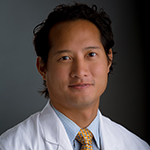The Division of Cardiothoracic Surgery is dedicated to educating the next generation of cardiac and thoracic surgeons, which has culminated in a program whose success can be measured by the caliber of its graduates.
Our Cardiothoracic Surgery Residency prepares residents to become outstanding cardiothoracic surgeons who are equipped not only to obtain American Board of Thoracic Surgery (ABTS) certification, but also to become leaders within both academic and community settings.
The strengths of our residency program include:
- Volume – UAB Hospital is one of the largest hospitals in the country, with over 1200 beds. We perform over 2000 cardiac and 800 thoracic cases per year, reflecting the acuity and pace of a quaternary medical center. Children’s Hospital of Alabama receives referrals from all over the Southeast: over 400 congenital heart cases are performed annually. The ratio of cases to residents at UAB is high (we are a “small” residency program compared to our clinical volume), ensuring that residents have excellent opportunities to participate in a wide breadth and high number of cases.
- Customization – Each UAB cardiothoracic surgery resident’s schedule is different, and personalized to their interests and career goals. There are “core” rotations that comprise the bulk of training; however, residents may choose to get extra experience in specific areas of interest, such as cardiothoracic transplantation, congenital heart surgery, and transcatheter interventions. Residents can participate in away and international rotations, if so desired.
- Culture of excellence – Our faculty have high expectations for resident performance both in and out of the operating room. Residents play an integral part of patient care and an emphasis is placed on developing outstanding technical skills and judgment. We believe the process of learning as a cardiothoracic surgeon continues after graduation: our goal is to provide trainees with a strong foundation of knowledge and technique, and the tools and training to continue to evolve as surgeons.
-
Research Opportunities
Participation in clinical research is considered part of cardiothoracic surgery training at UAB Hospital and Children’s of Alabama. Every clinical and research faculty member in the Division of Cardiothoracic Surgery is available to mentor medical students and residents who wish to perform research during their period of training. Please contact Benjamin Wei, M.D., via email at bwei@uabmc.edu and James Donahue, M.D., via email at jdonahue@uabmc.edu for opportunities in cardiothoracic surgery-related research.
-
Contact
 Benjamin Wei, M.D.
Benjamin Wei, M.D.
Program Director, Cardiothoracic Surgery ResidencyAttn: Liza Holman, Program Coordinator
701 Zeigler Research Building
703 19th Street South
Birmingham, AL 35294
Phone: (205) 996-7588
Email: elholman@uabmc.edu - Additional Resources for Residents